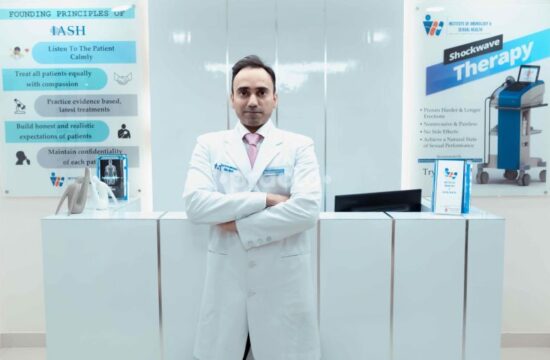Gynecomastia- A Male Disease
It is a health condition in which male breasts tissue swells or enlarge. It’s normal and nothing to be worry about. Seventy percent of the males are going through gynecomastia. Here’s what you need to know.
What Causes Gynecomastia?
It is mostly caused due to hormonal imbalance largely between estrogen and testosterone. Estrogen is the female hormone that controls female traits such as breast growth. While, testosterone is responsible for controlling male features including body hair and muscle mass. Although, each hormone is naturally present both in males and females but their concentration varies. The male produce lower levels of estrogen and female produce a lower levels of testosterone. If male estrogen levels are higher than the normal testosterone levels, this condition is called gynecomastia.
In addition, if you already have these diseases, you may have a chance to contract gynecomastia;
1. Testicles or adrenal glands tumors
2. Obesity
3. Hyperthyroidism
4. Liver disease
5. Hypogonadism
6. Malnutrition
7. Hyperthyroidism
8. Kidney disease
At What Age Gynecomastia Can Occur?
In males, gynecomastia can develop at different phases of their life include;
1. After birth
Research shows that new born boys have more estrogen levels which they received from their mothers after birth. Statistics indicates that more than half of the male infants are born with enlarged breasts. But this condition goes away within 4 weeks.
Also Read: What is a Fupa?
2. At Puberty
After the start of puberty which is 12-14 years of age male hormone levels change again. In this stage, gynecomastia usually appears.
3. At Mid and old age
In this phase,gynecomastia is at its peak. Males within 50-80 years of age are mostly affected with it. It is reported that currently 1 in 4 males are suffering with gynecomastia issue.
Drugs that Aggravates Gynecomastia
There are some drugs that may increase the risk of having gynecomastia in males include;
1. Steroids
2. Finasteride (Proscar)
3. Estrogens
4. Diazepam
5. Spironolactone
6. Digoxin
7. Amiodarone (Cordarone)
8. Cimetidine (Tagamet)
9. Ketoconazole (Nizoral)
10. Metronidazole (Flagyl)
11. Alcohol
12. Methadone
Clinical Diagnosis
Prior to diagnosis, endocrinologist or urologist will ask your medical history, physical symptoms and the health conditions that run in the family. Furthermore, a physical examination will include a detailed evaluation of the both breast tissue, abdomen and genitals. There are some lab test used to confirm the root cause of gynecomastia include;
1. Blood test
2. Hormone levels
3. Mammograms
4. Testicular ultrasound
5. Computerized tomography (CT) scans
6. Testicular biopsies
7. Magnetic resonance imaging (MRI) scans
Best Treatments Used For Gynecomastia
Many gynecomastia cases resolve over time without any treatment. Nonetheless, if it is caused by above mentioned conditions such as hyperthyroidism or hypogonadism, the patient needs treatment such as;
1. Medications
Your endocrinologist prescribes several medications that are used to treat breast cancer may also be helpful for men having gynecomastia. The most common medicines are;
1. Tamoxifen
2. Anastrozole
2. Surgery
In worst conditions, doctors advise surgery to avoid future complications. There are two kinds of surgery operations that endocrinologist will follow include;
- Liposuction
In this surgery, complete breast muscle is not remove, only breast fat detaches.
- Mastectomy
This procedure completely removes the breast gland tissue by inserting small incisions. This treatment is painful and take more recovery time. There are other conditions in which patient have the same symptoms like gynecomastia, but are not exactly gynecomastia include;
- Breast Cancer– It’s true man do get breast cancer but the percentage is very less. Mostly, breast cancer affects only one breast. A lymph starts to appear at one side of the breast and that particular area may get enlarged.
- Fatty breast tissue– this condition is mostly observed in obese man. It is worth mentioning that gynecomastia is not the fat deposits, in fact, it is the swelling of glandular tissue of the breast.
3. Seek Mental Health Professional Help
Gynecomastia can affect mental health and requires counseling for young boys and men. Sometimes, they feel embarrass or avoid such situations in which their chest is exposed for example, in swimming pools. So, talk to your doctor, family and close friends about how gynecomastia is making you feel. Don’t worry this condition is temporary. For more details, consult the best endocrinologist in Lahore at Marham.pk.
click here for more intreseting article











